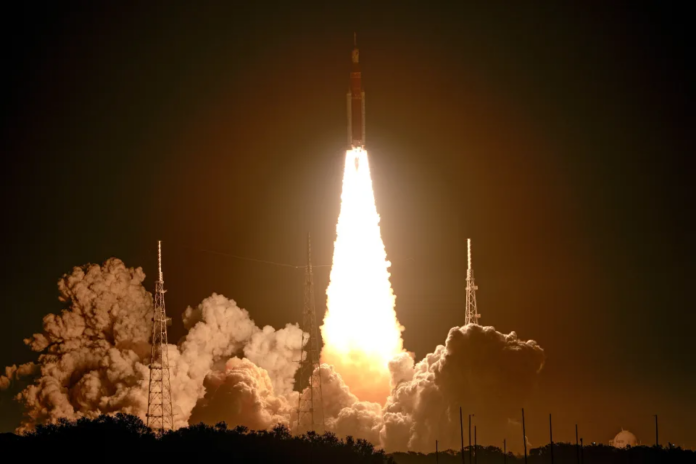NASA has decided to postpone its return to the Moon through the Artemis program. Bill Nelson, NASA Administrator, mentioned during a call with reporters that this delay is aimed at providing the Artemis teams with additional time to navigate the challenges associated with first-time developments, operation, and integration.
Artemis 2, initially set for a November 2024 launch, is now rescheduled for September 2025. This four-person mission will orbit the Moon, following a pattern similar to the uncrewed Artemis 1. Similarly, Artemis 3, which marks the return of humans to the lunar surface after nearly half a century, is now planned for September 2026, reflecting a nine-month postponement.
As of now, these are the only delays NASA has disclosed. According to Nelson, “Artemis 4 remains on track for September 2028.” This mission, in addition to a lunar landing, will include the delivery of a habitat module to the Lunar Gateway, a space station intended for lunar orbit.

Unveiling Safety Priorities: Insights into Artemis Program Delays and Ongoing Precautions
The delays in the Artemis program are primarily driven by safety considerations. According to Amit Kshatriya, deputy associate administrator of the Moon to Mars Program, new capabilities, such as propellant loading, crew loading, egress, and updated abort and life support systems, are being incorporated for Artemis 2.
Drawing insights from Artemis 1’s data and future mission component production, NASA identified areas requiring additional attention. Specifically, the thermal protection system on the spacecraft’s heat shield exhibited some unexpected issues during the Artemis 1 landing. NASA prioritized safety, dedicating much of 2023 to investigating and understanding the thermal protection concerns, aiming to identify the root cause in spring.
Additionally, challenges surfaced in the life support system. During Artemis 3 component acceptance, a failure in motor valve circuitry emerged, prompting a detailed examination. NASA discovered a design flaw, deeming the system unacceptable in its current state. To ensure crew safety, the agency plans to replace the flawed components, recognizing that thorough testing of changes will be time-consuming but necessary.
The Artemis delays come on the heels of a mission failure by Astrobotic, attempting to transport the first US commercial payload to the Moon. Despite encountering a propellant leak preventing a soft lunar landing, Astrobotic remains committed to exploring ways to prolong Peregrine’s operational life as a spacecraft.
